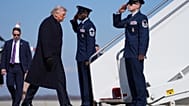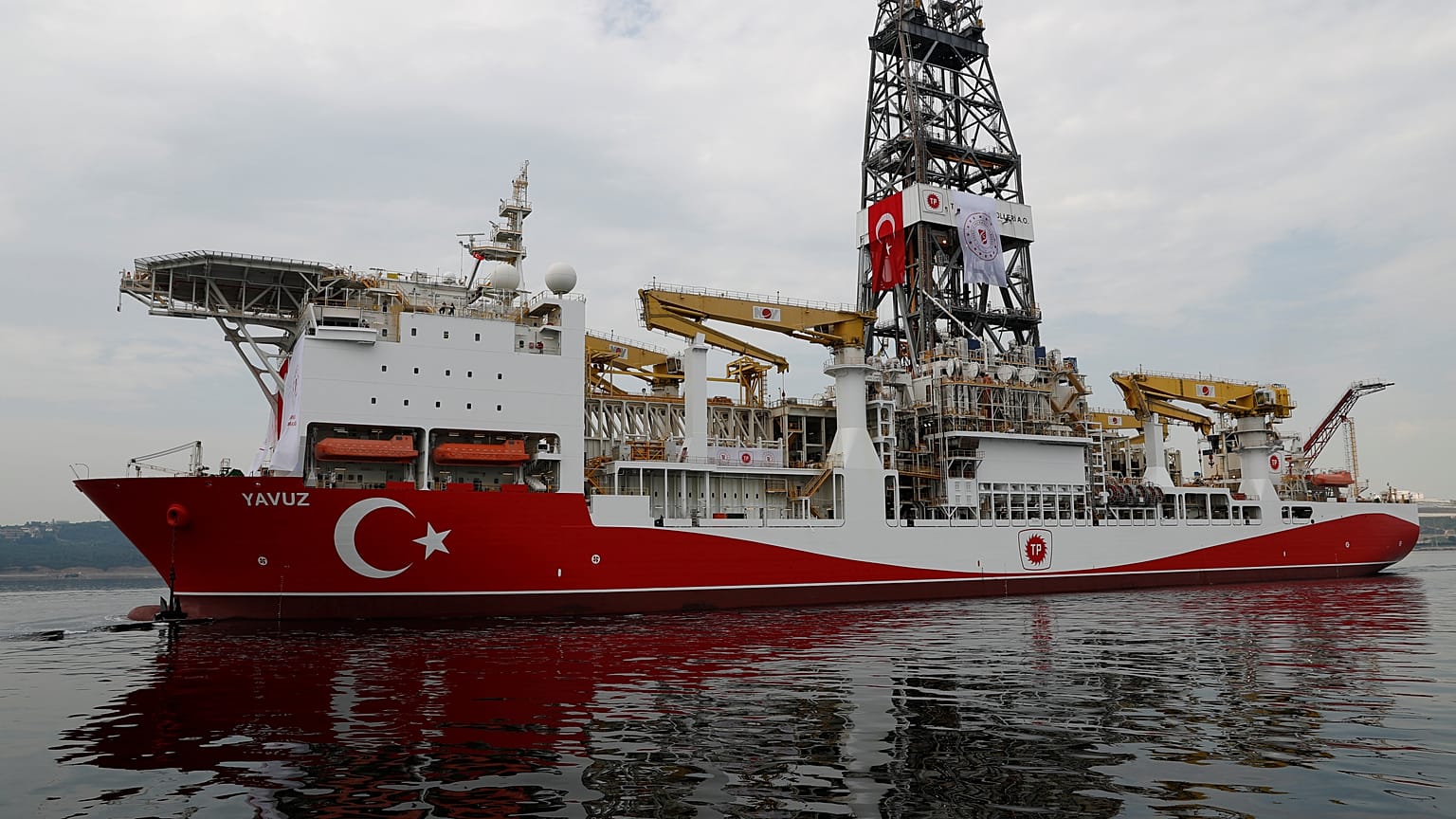The 45-year dispute over the northern part of Cyprus has flared up once more as Turkey begins oil and gas exploration off the coast but how did this conflict start?
European Council President Donald Tusk condemned Turkey's "illegal drilling activities off the coast of Cyprus" and issued a statement after meeting with Cypriot President Nicos Anastasiades.
 ADVERTISEMENT
ADVERTISEMENT
 ADVERTISEMENT
ADVERTISEMENT
"The European Council has strongly condemned these illegal actions. And in light of the new drilling activities by Turkey since the end of last week, I reconfirm that the EU stands united behind you. I call on Turkey to end these activities as they do not only undermine the recent efforts to resume Cyprus settlement talks but they also undermine good neighbourly relations between the EU as a whole and Turkey," Tusk said in a statement.
The head of Turkey’s foreign ministry said last week that a Turkish drillship would launch new drilling operations "within Turkey’s continental shelf" off the coast of Cyprus.
Turkey has said the drilling is legal because it is in the territorial waters of Northern Cyprus which are not recognised by any country other than Ankara.
The Turkish foreign ministry said in a statement that they did not recognise awards granted to French and Italian companies by Cyprus for hydrocarbon exploration because they say a portion of the awards fall within Turkey's continental shelf.
A joint Cyprus-Greece-Egypt statement released this week said Turkey's drilling operations had violated international law.
“The Heads of State and Government expressed their grave concern regarding the current escalation within the maritime zones in the eastern part of the Mediterranean Sea. In particular, they strongly condemned Turkey’s ongoing actions in Cyprus’ Exclusive Economic Zone and territorial waters, which violate international law,” the statement read.
In July, the European Union decided to reduce its financial assistance to Turkey for 2020 by €145.8 million for its decision to drill for oil and gas in Cypriot territorial waters.
Read more: EU sanctions Turkey for drilling off the coast of Cyprus
What happened?
Turkey first sent a first drilling ship to anchor off Cyprus in May, a move that was heavily condemned by the EU after pressure from Cyprus and Greece.
European leaders also issued a formal statement in June saying Turkey's drilling is "illegal" and that the bloc's "stands ready to respond appropriately."
It said: “The European Council underlines the serious immediate negative impact that such illegal actions have across the range of EU-Turkey relations.
“The European Council calls on Turkey to show restraint.”
It sent a second ship to explore a borehole off the northeastern coast of the island’s Karpas Peninsula at a depth of 3,300 metres in June, after which the EU warned Turkey that it faced "targeted measures" if it does not stop drilling.
What is the history of Cyprus?
In 1570, the predominantly Greek-speaking island of Cyprus came under the control of the Ottoman Empire. Over the centuries, many Turks settled on the island and a sizeable Turkish Cypriot community grew up.
But by the 19th century, the Ottoman Empire was in decline and it leased Cyprus to the United Kingdom in 1878.
By the time Cyprus became an independent country in 1960, the Greek-speaking community made up around three-quarters of the population but Turkish speakers were still a sizeable minority.
Post-independence relations between the Greek and Turkish Cypriots were uneasy and there had been outbreaks of violence between nationalist groups in the 14 years leading up to the coup.
What happened in 1974?
Relations between the two sides came to a head in July 1974 when the military junta that was ruling Greece at the time staged a coup d’etat so it could annex Cyprus as a part of Greece.
Responding to this, the Turkish military staged an invasion and captured the northern city of Kyneria, the northern corridor between Kyneria and the capital Nicosia and the Turkish quarter of Nicosia itself.
After three days, the military junta fell in Greece leading to the establishment of the democratic Third Hellenic Republic in Athens.
In Nicosia, the Greek Cypriot politician Glafcos Clerides assumed the presidency and control of the Republic’s government as the Greek army withdrew.
Following the failure of peace negotiations in Geneva, Turkey started a second invasion on 14 August and annexed the cities of Morphou, Karpass, Famagusta and the Mesaoria as well as holding onto territory they had captured during the first invasion.
A UN-backed ceasefire was eventually declared with a buffer zone running through the country which remains in place today.
What is the status of Northern Cyprus?
Turkey recognises Northern Cyprus, which takes up around 36% of the island’s landmass, as the Turkish Republic of Northern Cyprus.
The United Nations recognises it as a territory of the Republic of Cyprus currently under Turkish occupation.
Cyprus and Turkey have had no formal diplomatic relations since 1974.
What has this got to do with energy exploration?
The dispute comes because the area where Turkey is sending ships is off the northern coast of the island.
Cyprus and the EU consider the north to be part of the Republic of Cyprus and the waters surrounding it to be part of the Exclusive Economic Zone (EEZ) which means EU nations have the exclusive right to fish, drill and carry out other economic activities.
But as Turkey recognises Northern Cyprus as independent, with its own EEZ, Ankara says it is within its rights to drill there.
Energy Minister, Fatih Donmez, said: “Turkey will continue its operations in its own continental shelf and in areas where the Turkish Republic of Northern Cyprus has licensed Turkiye Petrolleri without stopping”.
He added that unilateral agreements made between Cyprus and the regional countries that attempted to “steal” the rights of Turkey and Turkish Cypriots had “no legal validity."














